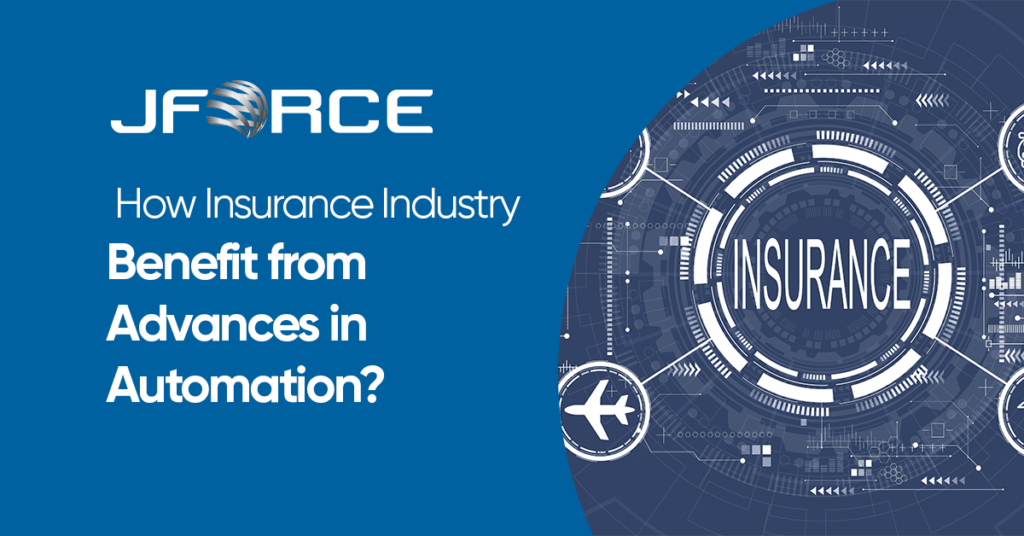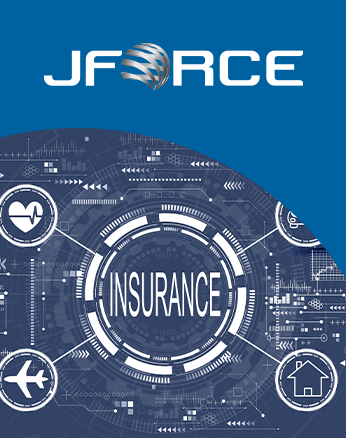
Changing customer expectations and lowering margins make digital transformation mandatory for all companies. Insurance companies can accelerate long business processes using Decision Automation and Artificial Intelligence.
Hyper Automation is a business-driven, disciplined approach that organizations use to rapidly identify, vet, and automate as many business and IT processes as possible. Hyper Automation involves the orchestrated use of multiple technologies, tools, or platforms, including Artificial Intelligence (AI), Machine learning, Process Automation, Business Rules Management, Orchestration, API Gateways, and Business Intelligence.
Insurance, which is delayed in adopting digital transformation compared to other sectors, is one of the industries that can get the highest efficiency from automation. Current technology is sufficient to speed up and eliminate errors in many of the tasks that insurance companies complete manually or semi-automatically.
Replacing traditional methods with insurance automation, insurance companies stay ahead of the competition by enriching the customer experience.
How will automation transform insurance?
Doing a lot of paperwork manually and swiveling chair operations between applications slows down the workflow and weakens the customer experience. Therefore, the insurance industry must invest in customer satisfaction.
Insurance automation provides the biggest change in the industry by accelerating the entire insurance process, especially claims, underwriting, collection, renewal, and sales. Focusing on customer experience, insurance companies are able to respond to the needs of their customers much faster by providing hybrid services.
Hyper Automation removes the necessity for ‘repetitive tasks’, ensures process reliability and timeliness, increases effectiveness, and puts data to work increasing sales closing rates as well as wallet share. Insurance companies, with hyper-automation can
- Leverage life events data and increase marketing performance x7
- Use decision management to achieve %75+ STP* with Claims
- Increase Underwriting Automation over %90
- Understanding customer behavior and act on insights
- Remove repetitive tasks like collecting and updating data
*(STP- Straight Through Process is a business process completed without any human involvement.)
It can make processes auditable, measurable, easily accessible from all channels, and efficient.
Companies that update insurance technologies holistically with HyperAutomation (HA), which combines advanced technologies such as artificial intelligence (AI), analytics, decision management, process automation & insights, OCR/ICR & Face Recognition, carry their working model from end to end to digital. In this way, the channels used to respond to requests become more effective and diverse.
Thanks to data science and predictive analytics; The insurance industry can update its policy and guarantee services in line with real customer expectations. Thus, it gets the chance to offer better service and products with the least risk.
Areas of Insurance Automation
Insurance automation is used to make the processes in almost every area of the insurance process more practical, faster, and seamless.
Sales
Decision management powered by AI now recognizes client patterns better than ever, consolidating customer data into insightful actions. The personification of offerings, tailoring of modular products in accordance with customer requirements, smart recommendation engines, and timely actions based on complex customer events streamline the marketing and sales processes. Augmenting insurance sales specialists with the power of AI and Decision Automation increases sales effectiveness by at least twenty percent.
Onboarding
Companies that acquire new customers can leverage automation technologies to gather customer information and required documentation. Face Recognition & mobile capture can make remote onboarding safe and quick. Leveraging smartphones in a more diverse sense to capture required documentation, demographic details, and signatures, getting video testimonials and statements are a quick and smart way of engaging new customers. Using Face Recognition in smartphones and NFC to read citizen ID cards with smart chips solves identity theft and abuse issues ensuring compliant and secure onboarding.
Smart bots streamline the process of verifying and validating documents, in the insurance space. Bots that accurately recognize text and images and automatically fill out forms help you quickly complete the customer engagement process.
Underwriting Operations
Underwriting generally requires a long and manual screening process. Your employees lose a long time in underwriting controls, updating internal systems, and communicating with customers. This slows down workflows and weakens the customer experience.
Smart onboarding forms powered by decision engines can ask the right questions and gather required inputs for underwriting. Integration and orchestration tools connecting with other insurance companies and government authorities can collect data in seconds whereas e-mail-based manual collection takes days. Standardized screening of customer profiles creates UW Risk scores which are automatically interpreted by AI to add a UW exemption or limit a cover and increase customer payables ratio. All together, automating underwriting processes can help insurance companies increase their efficiency by ninety percent.
Policy Management
RPA can be used in policy management, including insurance automation, policy updates, and policy issuance. Thus, policy creation, renewal, and cancellation as well as updating information such as address changes can be automated.
Regulatory Compliance
Insurance companies have to comply with many legal regulations and these regulations may change over time. In case of a breach, companies suffer financially and operationally.
Automated scanning systems generate multiple alerts to monitor compliance. However, these warnings need to be checked as they can be false positives. At this stage, AI-driven process automation can generate reports for compliance checks, customer research, and data security.
Processing of Claims
Claims processing is the most important process an insurance company can leverage to improve the customer experience. Although these processes take between 3 and a few weeks on average, in some cases they can take much longer.
Policy rules management using decision automation systems can accelerate this process by making the claims processing workflow much easier. For this, the receipt, evaluation, and resolution of requests can be automated. Thus, transactions that would take at least a few days can be completed within seconds for straight-through processing, and the remaining twenty-five percent of claims require manual adjustments completed on the same day.
Fraud Management
With the developing technology, fraud methods are also developing. Insurance companies are especially at risk in terms of compensation claims. Therefore, insurance companies need to take effective measures against fraud.
Details that may go unnoticed in transactions that can easily create fake documents, such as compensation claims, can cost companies dearly. Hyper Automation simplifies companies' fraud management by quickly scanning different documents. Fraud detection algorithms, which check the validity of documents, generate reports, minimizing the risk for compensation departments and companies.
Benefits of smart process automation in insurance
When used alone, RPA works without AI and decision support. This means that bots will only complete a task according to the given algorithm. Intelligent process automation, on the other hand, acts guided by artificial intelligence, allowing Process Automation to give much more efficient results.
By simulating human intelligence, AI and rules management systems can perform tasks that require high-level reasoning, decision, and analysis. It automates the entire workflow, not just a task, with features like machine learning, structured data interaction, and intelligent document processing.
The main benefits of smart process automation in insurance can be listed as follows:
Increase your income without additional expenses.
With smart process automation, you can provide higher quality service to more people without increasing the number of your employees. You get the chance to increase your income directly with automation, which helps you to perform higher without increasing your costs.
Speed up the workflow.
You can free up more time for your employees by speeding up time-consuming and repetitive tasks when done manually. In addition, all tasks in your company can be completed much faster with digital systems where different departments interact with each other quickly.
Increase employee productivity.
When you complete time-consuming and continuous tasks with digital solutions, your employees can focus on the work that will add value to your company. Moreover, smart automation systems support your teams to work much more efficiently with analysis and reporting.
Increase customer satisfaction.
Customer satisfaction in the insurance industry largely depends on your fast and smooth response. Intelligent automation allows you to support your customers in all processes without wasting time. Moreover, you can increase customer satisfaction by arranging your policy and coverage packages according to real estimates with artificial intelligence.
Strengthen your competitive position.
Combined with all the benefits, intelligent process automation helps you stay ahead of other companies in the insurance industry. Thus, you can compete much stronger.
Conclusion
Automation transforms the entire business process in the insurance industry, which requires many time-consuming business processes. Hyper Automation technologies, which provide faster and more efficient service, increase the competitiveness of companies along with customer satisfaction.
Check out JFORCE's insurance solutions to complete the digital transformation of your insurance company with new technologies.
